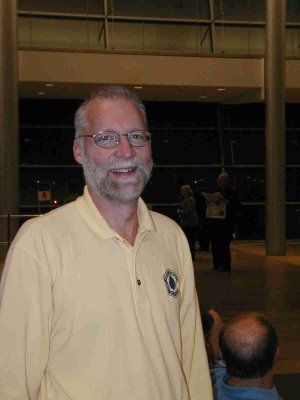Around the world in three or four hours ...
Here's a great story by Don Belt that illustrates how a solitary life can have a global impact:
ON A MOUNTAIN overlooking the Mediterranean near Beirut, a hermit rises at three in the morning, reaching for a flashlight amid the lumpy familiarity of books that are both his life’s work and his lifelong bedmates. The hermit, who’s 73, long-bearded, and known by the name Father Yuhanna, works there until dawn, translating ancient Christian hymns from Aramaic, the language of Jesus, into modern Arabic, copying them into a giant, leatherbound volume the size of a seat cushion. Then he prays, eats a piece of fruit, pulls on his black habit and cloak, and merrily sets off to deliver 10,000 blessings to every place in the world.
His first stop, always, is Alaska, where he “stocks up on fresh air.” Then he drifts down through North and South America, jumps to Africa, moves up through the Middle East, sweeps across Europe, then heads east into Russia and Asia before working his way south to Australia. Everywhere he goes, he distributes blessings, counting them off one by one on a string of woven rosary beads that fly through his fingers like doves. This daily trip takes three or four hours, and most days—if he doesn’t linger too long over the trouble spots—he’s back home by noon. To the untrained eye, he’s just an old man walking around in a garden. To his friends and followers, who come by the hundreds to hear his teachings about Jesus, he’s a saintly figure, a descendant of influential hermits like Simeon the Elder—a fifth-century ascetic who lived atop a stone pillar in the Syrian countryside for more than 30 years, attracting the pious devotion of locals.
By Don Belt, “The Forgotten Faithful: Arab Christians,” National Geographic, Vol 215, No 6 (June 2009), 86-7.
ON A MOUNTAIN overlooking the Mediterranean near Beirut, a hermit rises at three in the morning, reaching for a flashlight amid the lumpy familiarity of books that are both his life’s work and his lifelong bedmates. The hermit, who’s 73, long-bearded, and known by the name Father Yuhanna, works there until dawn, translating ancient Christian hymns from Aramaic, the language of Jesus, into modern Arabic, copying them into a giant, leatherbound volume the size of a seat cushion. Then he prays, eats a piece of fruit, pulls on his black habit and cloak, and merrily sets off to deliver 10,000 blessings to every place in the world.
His first stop, always, is Alaska, where he “stocks up on fresh air.” Then he drifts down through North and South America, jumps to Africa, moves up through the Middle East, sweeps across Europe, then heads east into Russia and Asia before working his way south to Australia. Everywhere he goes, he distributes blessings, counting them off one by one on a string of woven rosary beads that fly through his fingers like doves. This daily trip takes three or four hours, and most days—if he doesn’t linger too long over the trouble spots—he’s back home by noon. To the untrained eye, he’s just an old man walking around in a garden. To his friends and followers, who come by the hundreds to hear his teachings about Jesus, he’s a saintly figure, a descendant of influential hermits like Simeon the Elder—a fifth-century ascetic who lived atop a stone pillar in the Syrian countryside for more than 30 years, attracting the pious devotion of locals.
By Don Belt, “The Forgotten Faithful: Arab Christians,” National Geographic, Vol 215, No 6 (June 2009), 86-7.

